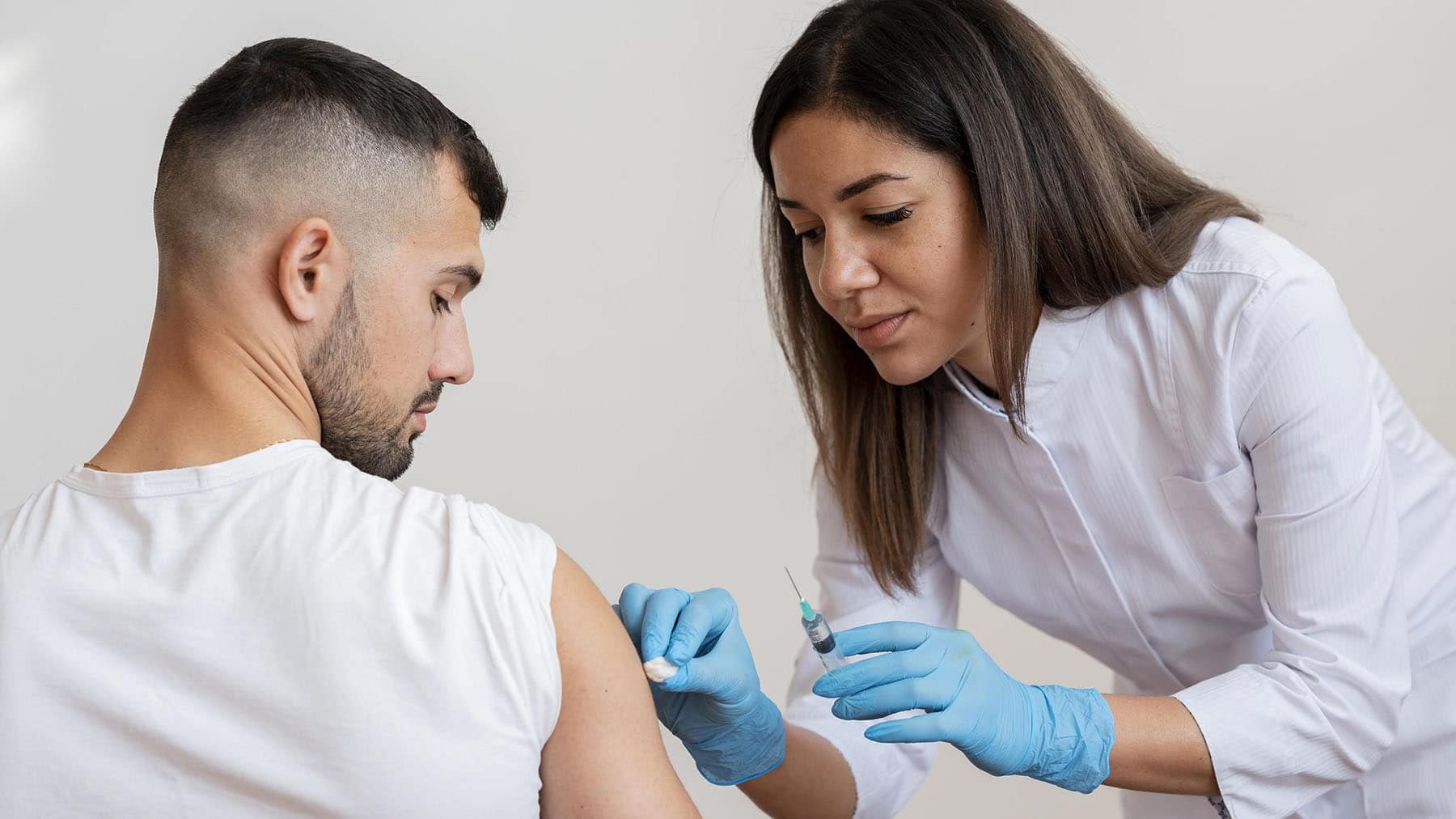
(The Media Line) — Almost 90% of Israelis older than 60 have received the first shot of the vaccine against the coronavirus. Israel’s youth, however, are not rushing to vaccination centers.
Israel announced a week ago that vaccinations are open to all Israelis ages 16 and up, yet only 9% of Israelis in their 20s have received the injection since then. With the end of COVID-19 restrictions hinging on the widespread vaccination of the country’s population, Israel’s hesitant youth may well prolong its crisis.
Israel’s return to normalcy is strongly tied to the percentage of the population that has been vaccinated. In a stepped plan submitted by the Ministry of Health, the final stage – that includes, for example, opening high-risk businesses – demands that more than four million Israelis be vaccinated, including 95% of the population ages 50 and over. The country’s vaccination drive has thus far brought the number of vaccinated to almost 3.7 million, yet, now the rate has slowed. Especially worrying is the disappointing turnout of young Israelis, which may well force the country to postpone its easing of restrictions.
“It is a potential danger whose chances of realizing are very high, that there will be a large segment of young people that chooses not to get vaccinated and that will force us into lockdown. Definitely,” Dr. Alon Hershko, director of Hadassah Ein Kerem Medical Center’s internal medicine department, told The Media Line. He added that “those that won’t get vaccinated are also most likely to act irresponsibly in other ways,” and so increase their chances of contracting and spreading the virus.
“Young people, generally, are healthy people. They don’t spend much time considering hard diseases and death,” Hershko, who also heads a COVID-19 ward at the Jerusalem hospital, suggested as an explanation for the choice many young Israelis have made not to vaccinate. He also tied the decision to the general anti-vaccination movement, both in Israel and globally. The damage done by all those that refuse to receive the vaccination, he estimated carefully, “is significant.”
Younger populations are less afraid of getting sick so what can motivate them are privileges – you want to go see a movie, to the cinema, to a concert? Come and get your shot
The lackluster response of Israel’s youth is surprising. During the previous week, when vaccination was only offered to older citizens, some younger than the age limit attempted to receive their dose by arriving at vaccination stations before closing. Vaccine phials remaining at the end of the day would be thrown out as expired if not used, so station managers allowed anyone present to receive a shot, even if underage.
Yishai, a 27-year-old Jerusalemite who works in finance, received his first vaccination before it was offered to the under 50s by taking advantage of one such opportunity. He told The Media Line that “I got vaccinated basically as soon as I could. In fact, I went and stood in line to get vaccinated without an appointment it was so important to me.” He added: “I want to be able to visit my grandmother in good conscience, but also because I didn’t want to take the chance I’d get ill myself or infect the rest of my family.”
The tide seems to have changed now, however.
Israel’s politicians are aware of the decreasing numbers of inoculations, an issue affecting not just young people. Lawmaker Yakov Asher, who heads the parliamentary Constitution, Law and Justice Committee that has been overseeing the government’s COVID-19 restrictions, told The Media Line that government officials are fighting the issue by creating incentives. Older citizens were vaccinated “because they don’t want to get sick,” he said, “younger populations are less afraid of getting sick so what can motivate them are privileges – you want to go see a movie, to the cinema, to a concert? Come and get your shot.” This proposal has been on the agenda for months but is now being pushed forward with increased vigor because of the worrying signs of a reluctant crowd.
The efforts appear to be having their intended effect. Daniel, a 28-year-old student from Israel’s north, was hesitant to receive his shot, passing on a previous opportunity to be inoculated. Now, however, he has scheduled an appointment. “I will be getting my vaccine because they will harm my freedoms, and this is something I can’t live with after a year in which we’ve had our liberties limited,” he told The Media Line.
Daniel attributes his hesitation to an ambivalence toward inoculation that he says persists due to a lack of trust in the various experts making statements on the subject. “I’ve got no idea who I should believe. One says this and another says the opposite,” he said. In addition, with those at higher risk already vaccinated, he isn’t convinced that the virus poses a danger to him that merits getting vaccinated.
I will be getting my vaccine because they will harm my freedoms, and this is something I can’t live with after a year in which we’ve had our liberties limited
Hershko said that people simply are not aware of how dangerous the virus is until they walk into a COVID-19 ward. The professor stresses the dangers of the disease – to all ages – and the safety of the vaccine. Meanwhile, the number of patients in Israel under 40 who are in dire condition has been on the increase recently, a development which some have blamed on the British variant.
“In my department, we have hospitalized patients ages 20 to 98. So, people shouldn’t tell me that it doesn’t harm younger people,” he said.
Hershko isn’t sure a mutation is to blame. He is sure, however, that in 26 years of practicing medicine he has never seen anything like this pandemic and its widespread damages. The vaccine, in turn, is excellent, he says: “I am telling you that this vaccine is as safe as any other vaccine.”























 More news and opinions than at a Shabbat dinner, right in your inbox.
More news and opinions than at a Shabbat dinner, right in your inbox.